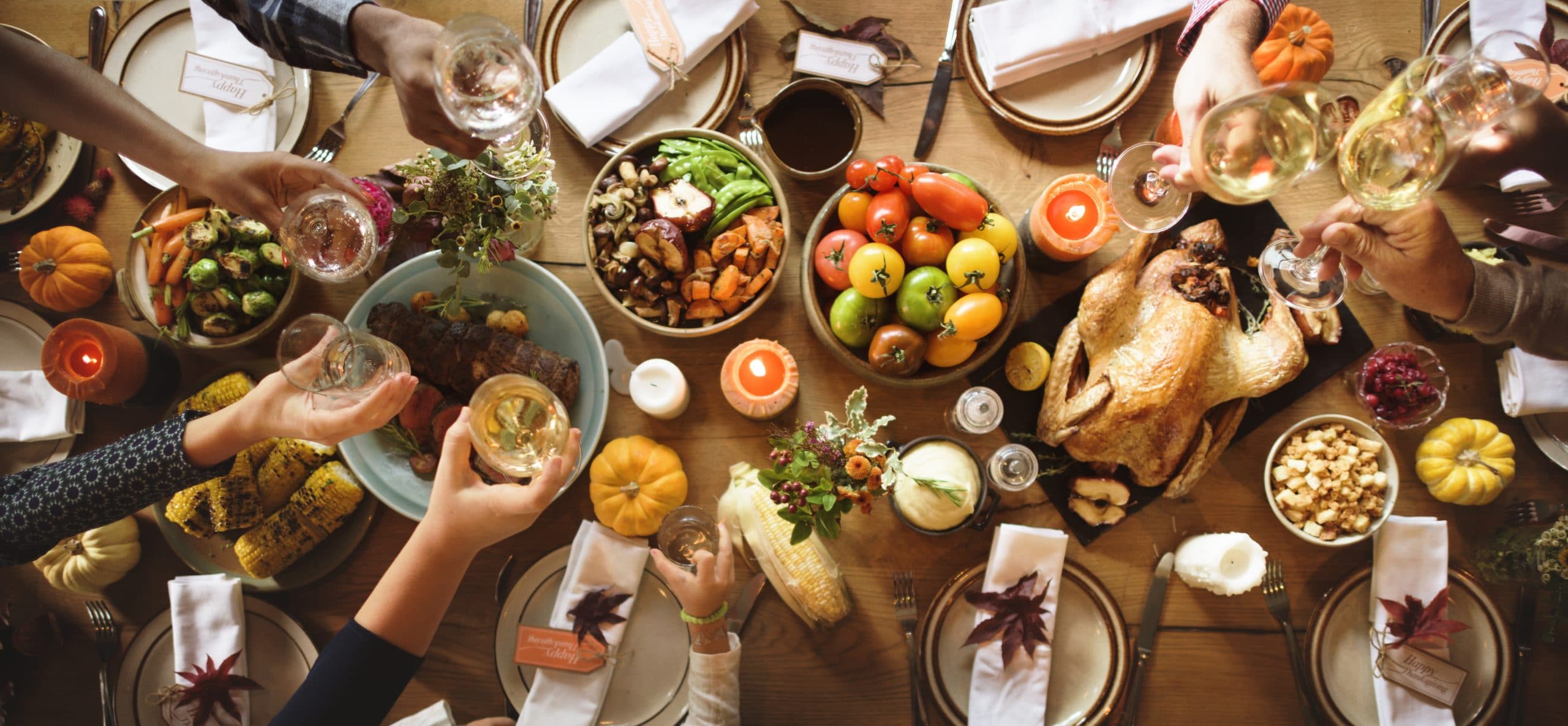#Life
Interfaith Guide: Hosting A Muslim Guest

Published

If you’re inviting a Muslim guest to a wedding, celebration, special event, or other types of gatherings, you may be wondering how to accommodate them and make them feel comfortable—just like you’d wonder about a vegan guest, for example. Muslims vary in how they practice their faith from individual to individual, just as you’d expect from any other spiritual tradition. The best thing you can do to is to have a conversation with your Muslim guests beforehand to make your specific guests comfortable. Here is a short primer on specific restrictions and practices (according to a normative, orthodox, mainstream understanding of Islam) that you may ask or talk about when planning your gathering.
As a side note, please take into consideration the health advisories from your local health and government agencies regarding the best practices for safe gatherings due to the ongoing Covid-19 pandemic.
Keep supporting MuslimMatters for the sake of Allah
Alhamdulillah, we're at over 850 supporters. Help us get to 900 supporters this month. All it takes is a small gift from a reader like you to keep us going, for just $2 / month.
The Prophet (SAW) has taught us the best of deeds are those that done consistently, even if they are small. Click here to support MuslimMatters with a monthly donation of $2 per month. Set it and collect blessings from Allah (swt) for the khayr you're supporting without thinking about it.
When The RSVP is No
Do not be offended if your Muslim guest declines your invitation to a religious or holiday gathering. Islam has two celebrations: Eid al-Fitr (after the month of fasting in Ramadan) and Eid al-Adha (after Muslims perform the Holy pilgrimage of Hajj), and the weekly ‘Eid’ which is Friday (Yawm al-Jumu‘ah). Furthermore, it is deemed impermissible for a Muslim to be part of any gathering if it entails one participating in unlawful things such as alcohol, or if the party is connected to a religious event of other faiths. So many Muslims will feel uncomfortable attending the event as they believe they are sinning by doing so and hope that their neighbors, family, colleagues, and friends of other faiths understand why they would not attend.
Food For A Muslim Guest
The major area of concern will be around food because Islamic rulings do have a few big dietary restrictions for its followers. If you’ve heard of “halal” food before, this is what we’re discussing. The big restriction categories are: foods/drinks with animal products and foods/drinks with alcohol in them.
As far as animal product consumption goes, there are two rules of thumb:
- most Muslims will never eat anything which has any pig products in them (ham, bacon, pig-derived gelatin in desserts, etc.)
- any vegetarian or vegan foods should be safe for all of your Muslim guests (unless they have alcohol, or other drugs, like marijuana, in them)
Muslims have a varied approach to animal/meat consumption within orthodox Islam, so you should just ask your guests because there’s no way to guess what they follow. Some Muslims will eat meat that is slaughtered in a specific way (often known as “zabihah”) and others will eat meat slaughtered in any way but will only eat certain animals (poultry is a common one some Muslims eat.) And to make things a little more nuanced, some Muslims are also fine with eating anything labelled as “kosher” from the Jewish tradition. Honestly, even I, as a practicing Muslim, will often ask my Muslim guests what their meat-related preferences are because it’s so different from one person to another.
With the growing prevalence of vegetarian and vegan food options, the awareness about animal by-products in food is more prevalent than it used to be. Watch out for packaged broths, stuffing, and gravy mixes as well as animal-derived gelatin in desserts. With more transparent food packaging available nowadays, it can be easier to determine whether or not something is vegetarian or vegan.
If at all possible, I would suggest you refrain from having main dishes with pork front-and-center if you have any Muslim guests coming over, like a smoked ham or ribs. This may be the one thing that could be very off-putting to Muslim guests and some might feel disgusted or offended. Even if you plan for your Muslim guests to eat specific dishes within their dietary restrictions, I would still suggest this. Most people would be too polite to say anything, so I’ll say it for them, since the goal of this article is to be as straightforward as possible.
The next big no-no is alcohol for Muslim guests. You may run into some Muslims who drink alcohol or do drugs, so it might not be a problem for some despite clear Islamic injunctions against using alcohol and drugs. The obvious place to find alcohol is in alcoholic beverages—wine, beer, hard liquors. I’ll be honest here—many Muslims will decline any invitation to a gathering at which they know or suspect alcohol will be served. Those coworkers/friends who feel obligated to attend a gathering may attend just out of fear of not being rude, but they spend the entire party feeling highly uncomfortable (I fall into that category.)
Here are some ways you can accommodate your Muslim guests when it comes to serving alcoholic drinks. The first, and most ideal, would be to have a completely dry event, or no alcohol served whatsoever. The second would be hosting a partially dry event in which the beginning half of the event, through dinner, is dry. You can let your guests know that dinner will be served at 7 and the bar will open up at 9, for instance. This will give your Muslim guests a chance to come by and enjoy dinner with you, but leave before they start feeling uncomfortable. You may be surprised that Muslim guests aren’t the only ones who value dry events There are plenty of people struggling with alcoholism and addiction who may be incredibly thankful for a way to attend your gathering but leave before it becomes problematic for them. If having a completely dry or partially dry event isn’t something you’re willing to do, then consider having the drinks isolated to a particular spot, setting up a bar in a corner or specific area so that Muslim guests may distance themselves comfortably. Once again, it’s best to just ask your specific Muslim guests what could work for them.
But alcohol isn’t only limited to drinks! There are also some foods where alcohol creeps up and surprises you, such as sauces, glazes, or marinades. Doesn’t the alcohol cook off, though? That’s still a problem according to the orthodox Islamic diet. Another surprising place you’ll find alcohol is in extracts, commonly used for baking, such as vanilla extract. Extracts are a place where orthodox Islamic scholars differ, so some practicing Muslims do believe it’s permissible for them to eat food with extracts in them. Once again, it’s a great idea to ask beforehand or have an alternative dessert option for Muslim guests.
All in all, when it comes to what you serve at your gathering, communication is key. Ideally, talk before the event to adjust your plans. At the party, clearly label all food items or accompany your Muslim guests as they fill their plates so you can answer questions that they may have about what is in a certain food. A potluck can be slightly challenging, but asking about each dish when it’s brought in and labelling food with dietary restrictions relevant to your guests (vegetarian, vegan, no alcohol, peanuts/walnuts, et.c.) is still possible.

Navigating Cross-Gender Boundaries For A Muslim Guest
Another aspect of the party to consider is helping your Muslim guests navigate being in a party with people of different genders than themselves. Generally speaking, practicing Muslims are only allowed to make physical contact with adults who belong to the same gender as themselves. So as a rule of thumb, don’t attempt to greet a Muslim with touch—like a handshake or hug. You can wait for them to initiate any friendly physical contact. If they don’t reach out for a handshake or go in for a hug, then simply just move on to showing them in or continuing your conversation without touching them.
Something else you may consider is making comfortable seating arrangements. If you’re assigning seats, I’d suggest you ask them who they’d feel comfortable sitting next to, because they might be uneasy sitting next to someone of a different gender than themselves in case they accidentally touch them, like bumping elbows or something with them at the table, or if they are more reserved when it comes to socializing with them in order to observe Islamic principles of modesty between genders.
Dogs And Muslim Guests
As a small note, many Muslims try to avoid being around dogs due to a specific ritual purity issue. If it’s possible to keep any pet dog/s in a particular area of the house while guests are around, or at least prevent the dog from jumping on/drooling over your Muslim guest, that would be easier for some Muslim guests. Since many Muslims avoid being around dogs, you’ll find that some are coincidentally somewhere between nervous to terrified around them. I know your dogs are a part of your family, so maybe reach for a compromise.

Provide a Prayer Space For A Muslim Guest
Your guest may or may not need a private space in which to pray, depending on if they need to offer one, or more, of the five daily ritual prayers Muslims perform. As long as the floor is pretty clean, they should be good enough to offer their prayers (and will probably be done with them, quietly/silently, in about five minutes.) You might also offer them a clean pillowcase to use on the floor in lieu of a prayer rug, for extra hospitality points. If the space isn’t full of pictures of animals or people or statues, that’s a bonus. The best thing to do would be to ask your guest beforehand, upon inviting them to your party, or when they first arrive if they’ll need to pray so you can show them where they can do that.

Approaching Religious Activities
Holiday parties, weddings, or other gatherings may be full of activities that are related to religious traditions other than Islam. I assume any Muslim guest who is being invited to a church wedding or Christmas celebration will understand that. My biggest suggestion would be to give them their own space when it comes to something like singing Christmas carols together, praying communally, or anything else that is specifically from a religious tradition different from their own. They’ll find a way to observe, join or excuse themselves.
If you know your Muslim guest doesn’t celebrate whatever holiday/s you’re celebrating, then avoid wishing them “Merry Christmas.” If it slips out on accident, just acknowledge the awkward moment: “Oops! I know you don’t celebrate Christmas. Sorry about that! Thanks for coming!”
If there are games being played or gifts given out, especially for children, try to make specifically nonreligious options available for your Muslim guests. For example, kids decorating stockings or making ornaments together at a Christmas party might be a little iffy for some Muslim families because those are rituals directly related to celebrating Christmas, a Christian holiday. Try decorating gingerbread cookies/houses instead. If the kids are playing Bingo, why not use winter-motifs instead of religious ones? If your party has goodie bags or favors, perhaps an innocent candy cane print bag or a snowflake favor, rather than something with Rudolph or Santa all over it, would be better. An easy way to make “Secret Santa” more halal in this case, would be simply to call it a “secret gift exchange.”
Another issue: music and dancing. There’s a range of what orthodox Islamic rulings are regarding these two topics. As far as music goes, you should be pretty safe to include it in your event if you have music playing reasonably quietly in the background at your gathering. Dancing in a mixed-gender crowd is considered impermissible. Once again, just ask your Muslim guest about this if it’s on the agenda and try to make a plan they’re okay with. If your Muslim guest leaves before the dance floor opens at your wedding, know that they’re simply avoiding an activity they believe they are not allowed to participate in.
Overall, leave enough room for your Muslim guest to feel comfortable joining in or distancing themselves with anything going on, and never pressure them to participate. If you can communicate with your guest beforehand, great! If not, then give them space and/or check in with them if you’re feeling unsure about something. And once again, your Muslim guests may not be the only ones who value the sensitivity your holiday party has. There could be other guests at your party who have varying religious backgrounds and affiliations.
As a side-note: for a holiday that is not mainstream, like Hannukah or Kwanza, you may want your party to fully lean into your specific celebration—I get that, and support it, in light of the marginalization and erasure of minority communities. If that’s the case, just be upfront with your Muslim guests and ask them if they’d like to come and what they will be observing and/or potentially participating. Having a conversation about it might be uncomfortable, but it will be worth it if you really want your Muslim friend to be there at a wedding or special event.
Conclusion
I wish you the best as you navigate including and accommodating Muslim friends, family, neighbors, and coworkers in a gathering you are hosting. Some Muslims will politely decline an invitation outright while others will be grateful for an invitation once they know you’re planning to accommodate them. Whatever response you find, thank you for at least thinking of inviting your Muslim neighbor, coworker, or friend to share in your merrymaking. Remember, this article is providing you with suggestions based on orthodox Islamic rules; some rules are black-and-white and some have a lot of gray. As a side note, the way Muslims practice and avoid practicing Islamic rules/principles varies from person to person. Communication is going to be your best tool to accommodating and including your Muslim guests at your gathering/celebration.
Keep supporting MuslimMatters for the sake of Allah
Alhamdulillah, we're at over 850 supporters. Help us get to 900 supporters this month. All it takes is a small gift from a reader like you to keep us going, for just $2 / month.
The Prophet (SAW) has taught us the best of deeds are those that done consistently, even if they are small. Click here to support MuslimMatters with a monthly donation of $2 per month. Set it and collect blessings from Allah (swt) for the khayr you're supporting without thinking about it.
Meena is a writer, podcaster, high school English teacher, wife, and new mom. She loves working with Muslim youth and is interested in literature, arts, and culture. She studied Comparative Literature and Creative Writing at the University of California, Irvine and has a Master’s in Education from the University of Illinois at Urbana-Champaign. She briefly dabbled in Classical Arabic studies in the US and is also studying the Asharah Qira'aat/10 Recitations. Check out her podcast and website Brown Teacher Reads: the brown literature circle you always wanted to be in. (brownteacherreads.com)


Courting The Crosswinds: The Tragedy Of Saif Al-Islam Qaddafi

Parenting Through Times Of Fear, Injustice, And Resistance: A Trauma-Informed, Faith-Centered Guide

Recognizing Allah’s Mercy For What It Is: Reclaiming Agency Through Ramadan

[Podcast] Dropping the Spiritual Baggage: Overcoming Malice Before Ramadan | Ustadh Justin Parrott

Far Away [Part 8] – Refugees At The Gate

[Podcast] Should Muslims Ally with Conservatives or Progressives? | Imam Dawud Walid

How to Make this Ramadan Epic | Shaykh Muhammad Alshareef

[Podcast] The Parts of Being an Imam They Don’t Warn You About | Sh Mohammad Elshinawy

Keeping The Faith After Loss: How To Save A Grieving Heart

[Podcast] Guardians of the Tradition: Muslim Women & Islamic Education | Anse Tamara Gray

[Podcast] Guardians of the Tradition: Muslim Women & Islamic Education | Anse Tamara Gray

How to Make this Ramadan Epic | Shaykh Muhammad Alshareef

[Dhul Hijjah Series] Calling Upon the Divine: The Art of Du’a (Part 1)

IOK Ramadan 2025: Four Steps | Sh Zaid Khan

IOK Ramadan 2025: Do Your Best | Sh Zaid Khan
Trending
-
#Current Affairs1 month ago
An Iqbalian Critique Of Muslim Politics Of Power: What Allamah Muhammad Iqbal’s Writings Teach Us About Political Change
-
#Current Affairs4 weeks ago
[Podcast] Should Muslims Ally with Conservatives or Progressives? | Imam Dawud Walid
-
#Current Affairs1 month ago
Op-Ed: From Pakistan To Gaza – Why Senator Mushtaq Ahmad Khan Terrifies Power And Zionism
-
#Culture1 month ago
The Muslim Book Awards 2025 Winners












Muhammad
December 19, 2021 at 3:28 AM
How can U ‘support’ someone’s ‘right’ to commit kufr?
Smh